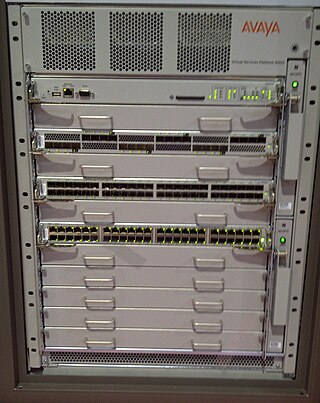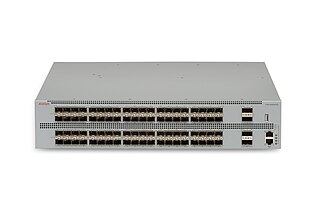4000 series is an industry-standard family of integrated circuits.
4000 series may also refer to:
Transportation in South Korea is provided by extensive networks of railways, highways, bus routes, ferry services and air routes that traverse the country. South Korea is the third country in the world to operate a maglev train, which is an automatically run people mover at Incheon International Airport.
Blue Line or Blueline may refer to:

Seoul Subway Line 4 of the Seoul Metropolitan Subway is a long line crossing from the southwest to the northeast across the Seoul National Capital Area. The central section in Seoul City is operated by Seoul Metro with some trains offering through service to Korail's Ansan and Gwacheon Lines. The southern terminus (Oido) is in Jeongwang 4-dong, Siheung City, and the northern terminus (Jinjeop) is in Jinjeop-eup, Namyangju-si, Gyeonggi-do; the newly built northern section is correspondingly owned by a company owned by Namyangju-si, with operations contracted to Seoul Metro. In 2022, the Seoul Metro operated section had an annual ridership of 219,587,000 or about 601,608 passengers per day.

AREX is a South Korean airport rail link and commuter rail line that links Incheon International Airport with Seoul Station via Gimpo International Airport.

Rail transport in South Korea is a part of the transport network in South Korea and an important mode of the conveyance of people and goods, though railways play a secondary role compared to the road network. The network consists of 4,285 km (2,663 mi) of standard-gauge lines connecting all major cities with the exception of Jeju City on Jeju Island, which does not have railways; of the network, 2,790 km (1,730 mi) are double-tracked and 3,187 km (1,980 mi) are electrified. In 2018, rails carried 11.5 percent of all traffic in South Korea – 134.8 million passengers and 30.9 million tonnes of freight – with roads carrying 88.3 percent.
Seoul, the capital and largest city in South Korea, accounts for only 0.6% of the country's total land area, yet it is home to around 19% of the population. The population density in Seoul demands a great deal of the city's transportation systems, which are regarded by many as among the best and most advanced in the world. Seoul is very well connected by its subway and bus systems, and the city is also very supportive of pedestrian foot travel. In 2006 it won the Sustainable Transport Award.
7000 series may refer to:
5000 series may refer to several types of trains:
9000 series may refer to:
8000 series or 8000 class may refer to:
3000 series may refer to:
Juniper J series is a line of enterprise routers designed and manufactured by Juniper Networks. They are modular routers for enterprises running desktops, servers, VoIP, CRM / ERP / SCM applications. The J Series routers are typically deployed at remote offices or branch locations. These Services routers include the J2320 and J2350 for smaller offices, the J4350 for medium-size branches, and the J6350 for large branches or regional offices.
IEEE 802.1aq is an amendment to the IEEE 802.1Q networking standard which adds support for Shortest Path Bridging (SPB). This technology is intended to simplify the creation and configuration of Ethernet networks while enabling multipath routing.

Ethernet Routing Switch 5600 Series or in computer networking terms are stackable routers and switches designed and manufactured by Avaya. The ERS 5600 Switches can be stacked up to 8 units high to create a 1.152 Tbit/s backplane through the Flexible Advanced Stacking Technology (FAST) stacking technology configuration. The 5600 Series consists of five stackable models that can be mixed and matched together with other ERS 5600 models or other ERS 5500 models to meet configuration requirements. Additionally the ports on the switches incorporates the Avaya Energy Saver (AES) which can manage and dim down the power requirements to save energy across all switches in the enterprise.

Avaya Virtual Services Platform 9000 Series or VSP 9000 is a set of modular chassis switches used in enterprise and data center networks, manufactured by Avaya. The VSP 9000 was targeted at institutions which were suffering from performance limitations, needed to simplify their network infrastructure in a virtualized environment, or required 10 Gigabit Ethernet with the option to scale to 40 or 100 Gigabit Ethernet. It is also an option for companies who are looking to reduce the power and cooling cost in order to maximize the cost-effectiveness of their infrastructures; this unit was also designed, and is expected, to have a lifespan of seven-to-ten years.

Ethernet routing switch 4000 series or in computer networking terms are stackable layer-3 (routers) and layer-2 (switches) designed and manufactured by Avaya for Ethernet devices. The ERS 4000 series consists of two major groups of devices, the ERS 4500 models and the ERS 4800 models.

Ethernet Routing Switch 3500 series and Ethernet Routing Switch 2500 series or ERS 3500 and ERS 2500 in data computer networking terms are stackable routing switches designed and manufactured by Avaya.
The Avaya Virtual Services Platform 4000 series are products that, in computer networking terms, are standalone switch/routers designed and manufactured by Avaya for Ethernet-based networks. The VSP 4000 hardware is a derivative of the earlier Ethernet routing switch 4000 series, leveraging certain shared components, but implementing a new, completely different, operating system derived from the virtual service platform 9000 series. The role of the VSP 4000 is to extend fabric-based network virtualization services to smaller, remote locations, thereby creating a single service delivery network.

The Avaya Virtual Services Platform 8000 Series, or VSP 8000, is a standalone Ethernet Switch manufactured by Avaya, and intended for use in Campus network and Data Center deployment scenarios.
Jungang Station may refer to the following stations in South Korea: